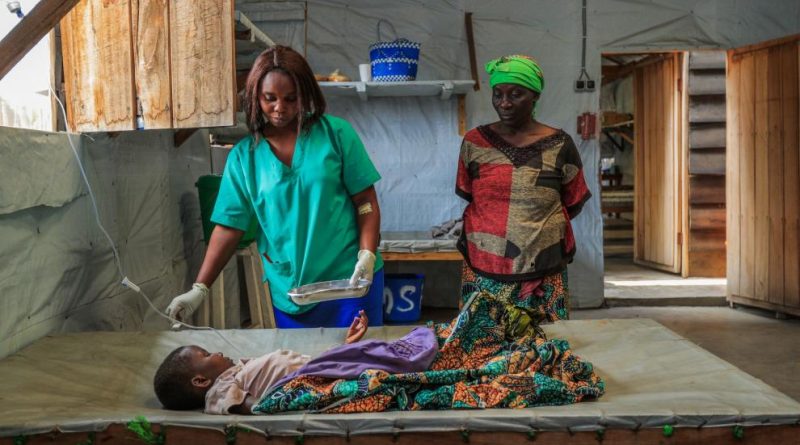Cholera cases in Africa surging fast, reaches a third of 2022 total in January 2023
In the midst of a worldwide outbreak, cholera infections are surging in Africa. Over 30% more cases were reported across the continent in January 2023 alone compared to 2022’s total.
As of January 29, 2023, outbreaks had been documented in 10 African countries with an estimated 26,000 illnesses and 660 fatalities. Nearly 80,000 cases and 1863 fatalities from 15 affected countries were reported in 2022. The number of cases reported in 2021, the worst year for cholera in Africa in almost a decade, may be surpassed if the current pattern of rapid increase continues. The average case fatality ratio has almost reached 3%, which is higher than the 2.3% reached in 2022 and significantly higher than the permitted limit of less than 1%.
The majority of the newly reported cases and fatalities are from Malawi, which is experiencing its worst cholera outbreak in twenty years. Mozambique and Zambia, two of Malawi’s neighbors, have both recently recorded cases. In East Africa, Ethiopia, Kenya, and Somalia are battling breakouts in the midst of a severe and protracted drought that has left millions of people in desperate need of aid. Nigeria, the Democratic Republic of the Congo, Burundi, Cameroon, and Cameroon have all recorded cases.
According to Dr. Matshidiso Moeti, Regional Director of the WHO for Africa, “We are witnessing a disturbing picture where conflict and extreme climatic events are exacerbating the triggers of cholera and raising its toll on people. “African nations must increase their readiness to swiftly identify cases and mount thorough, prompt responses. We are helping countries strengthen crucial control measures to promptly put an end to these epidemics.
According to Dr. Matshidiso Moeti, Regional Director of the WHO for Africa, “We are witnessing a disturbing picture where conflict and extreme climatic events are exacerbating the triggers of cholera and raising its toll on people. “African nations must increase their readiness to swiftly identify cases and mount thorough, prompt responses. We are helping countries strengthen crucial control measures to promptly put an end to these epidemics.
Through the International Coordinating Group on Vaccine Provision, around 3.3 million doses of the cholera vaccine have already been distributed to the Democratic Republic of the Congo, Kenya, and Mozambique, which will get its shipment in the upcoming days. The International Federation of the Red Cross and Red Crescent Societies, Médecins sans Frontières, the United Nations Children’s Fund, and WHO have joined forces to launch this effort, which attempts to handle emergency vaccine supplies.
The International Coordinating Group on Vaccine Provision temporarily suspended the traditional two-dose vaccination schedule in cholera outbreak response campaigns in favor of a single-dose strategy as a result of the increased number of cholera outbreaks around the world. The shortfall could get worse if cholera outbreaks continue to rise.
Cholera is a severe, incredibly contagious infection that spreads quickly and causes dehydration, which has a high morbidity and fatality rate. The illness is manageable, though. Most patients can be successfully treated with prompt use of intravenous or oral rehydration solutions.
According to Dr. Moeti, every cholera-related death is avoidable. This illness presents both a health and a development issue. The public health initiatives to effectively manage and eradicate cholera are thus powerfully complemented by investments in improving sanitation and access to safe water.
Implementing comprehensive policies is necessary for effective control. These policies should include improved epidemiological and laboratory surveillance to detect, confirm, and respond quickly to outbreaks, better access to treatment, vaccines, safe water, and basic sanitation, as well as community behavior change and improved hygiene practices.
In addition to ongoing outbreaks of other diseases like wild poliovirus and the COVID-19 pandemic, conflicts, extreme weather conditions, and inadequate financial and human resources are all factors contributing to the cholera outbreaks in Africa.
Dr. Patrick Otim, Health Emergency Officer, Acute Events Management Unit, addressed a news conference for WHO today. He was accompanied by Dr. Charles Mwansambo, Malawi’s Secretary for Health, and Dr. Placide Welo, Director of the Democratic Republic of the Congo’s Ministry of Health’s Cholera Elimination and Diarrheal Disease Control Program. Dr. Thierno Balde, the regional COVID-19 incident manager, was also present from the WHO Regional Office for Africa.




